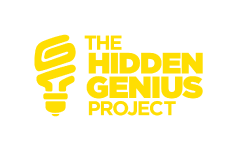By: Curtis Bunn, NBC News – NBC Blk
Date: Friday, August 6, 2021
Shelly Bell’s company was hatched in an ordinary home in southeast Washington, D.C., five years ago, when friends contemplated the lack of opportunity and access for Black female entrepreneurs.
After deciding to pitch ideas for businesses to one another, they threw their cash in a pot and voted for the winning idea by placing marbles in coffee mugs.
Black Girl Ventures was the winner that evening, and it has been supporting business enterprises by Black women with money, resources, community connections and other means to launch and succeed.
On Friday, Bell’s company was on the receiving end, as it was among 22 organizations that split $6 million in grants from the NBA Foundation, started a year ago to support businesses that focus on creating jobs and driving economic empowerment for Black youth and business owners.
“This is a situation where the NBA is putting its money where its mouth is,” said Bell, whose company funds and assists businesses owned by Black women that have generated under $1 million.
The NBA Foundation was born out of the 2020 social justice movement that followed the murder of George Floyd in Minneapolis by a police officer. The Milwaukee Bucks protested by not playing in a playoff game after the shooting of Jacob Blake by police in nearby Kenosha, Wisconsin, and the reverberations from their stand inspired the league to create the foundation.
“The league came together and focused on economic opportunity for Black youth, ages 14 to 24,” Greg Taylor, the foundation’s executive director, said. “I think in many ways the NBA has a tremendous history around being involved in issues of social justice and civil rights, and the origin of the foundation is standing on that history.
“That moment that the Bucks decided not to play was an inflection point that really had us thinking internally, ‘What is it that we can do over time to really contribute to a new opportunity for young people?’ And the NBA Foundation was born out of those discussions.”
The foundation started as if on a fast break. Last year, it awarded $5 million in grants among 18 organizations that provide skills training, mentorship and coaching for high school, college-aged, job-ready and midcareer individuals in communities across the United States and Canada.
With the undisclosed amount from the NBA Foundation grant, Bell said she plans to develop an entrepreneur system for students at historically Black colleges.
“Part of our theory is: strengthening families and creating a more equitable society,” she said.
To that end, Bell said she constructed a six-week entrepreneurship syllabus for trainees that is unlike most business training models that assume the prospective owner has startup money. “That clearly wasn’t my journey and that clearly isn’t the journey of most Black and brown founders in general,” she said. “And so, I needed to build a curriculum that would allow people to actually start from the money mindset, and then move into what that means from a sales personality and into what it means to build a strong business.”
Shawn Wilson, the president and CEO of the Boys and Girls Clubs of Southeastern Michigan, said he was excited to be among the grant recipients of this second round of awards. But said he was equally excited that the NBA Foundation has been intentional in its mission.
“I’m really impressed that they have been able to connect the dots between social justice and economic mobility,” Wilson said. “We’re focusing on career, startup, homeowner-readiness. Why is it that we have to focus on entrepreneurship? Why is there redlining to limit our home ownership? Why is there an inequity in funding startups of color? Systemic racism. So I commend them for taking action, not just making a pledge, but also bringing it to fruition.”
Wilson said the $300,000 his organization was awarded will fund the programs at his Boy and Girls Club that are centered around business ownership, including a recently launched Sports and Entertainment Club that focuses on jobs in those industries that can lead to ownership. Already, his youths’ Fashion Club produced and sold $10,000 worth of T-shirts and hoodies, he said. The kids were paid $10-to-$13 an hour, and learned what it means to operate a business, he added.
The NBA Foundation is going to see “a strong return on investment. When you’re investing in skill-building, when you’re investing in workforce development, entrepreneurship development, when you’re investing in those areas, you see a generational” return on investment, Wilson said.
Brandon Nicholson launched his nonprofit, The Hidden Genius Project, in 2012 in Oakland, California. His organization mentors and trains Black high school boys in entrepreneurship, technology and leadership. The program — which also operates in Richmond and Los Angeles and is supported heavily by the technology company Team, Inc. — also was awarded an NBA Foundation grant.
Nicholson said part of the grant program allows his organization to collaborate with other grantees and build relationships that foster creative ways to expose young people to “a vast array of opportunities and helping them see how they can have a career in professional sports, even if it’s not on the court, with technology being a great pathway to that.”
The Hidden Genius Project, which has partnered with the Golden State Warriors and Detroit Pistons of the NBA, served up to 2,300 “active scholars” a year before the pandemic and more than 1,000 last year.
“It’s not even just that the NBA is putting up the dollars,” Nicholson said, “but really engaging with and empowering extremely impactful organizations that have been doing this work in their community for years.”
The NBA Foundation was part of the league’s announced $300 million commitment over a decade to support youths in distressed communities and Black-owned businesses.
“But the initial 10-year window was to send the message that we knew the issues facing the communities were not going to be resolved overnight,” said Taylor, the foundation’s executive director. “And so we wanted to underscore our commitment. But we have every intention for this to be a foundation that operates in perpetuity and will grow in size, and that will continue to make and operate in our communities for years and years to come.”


